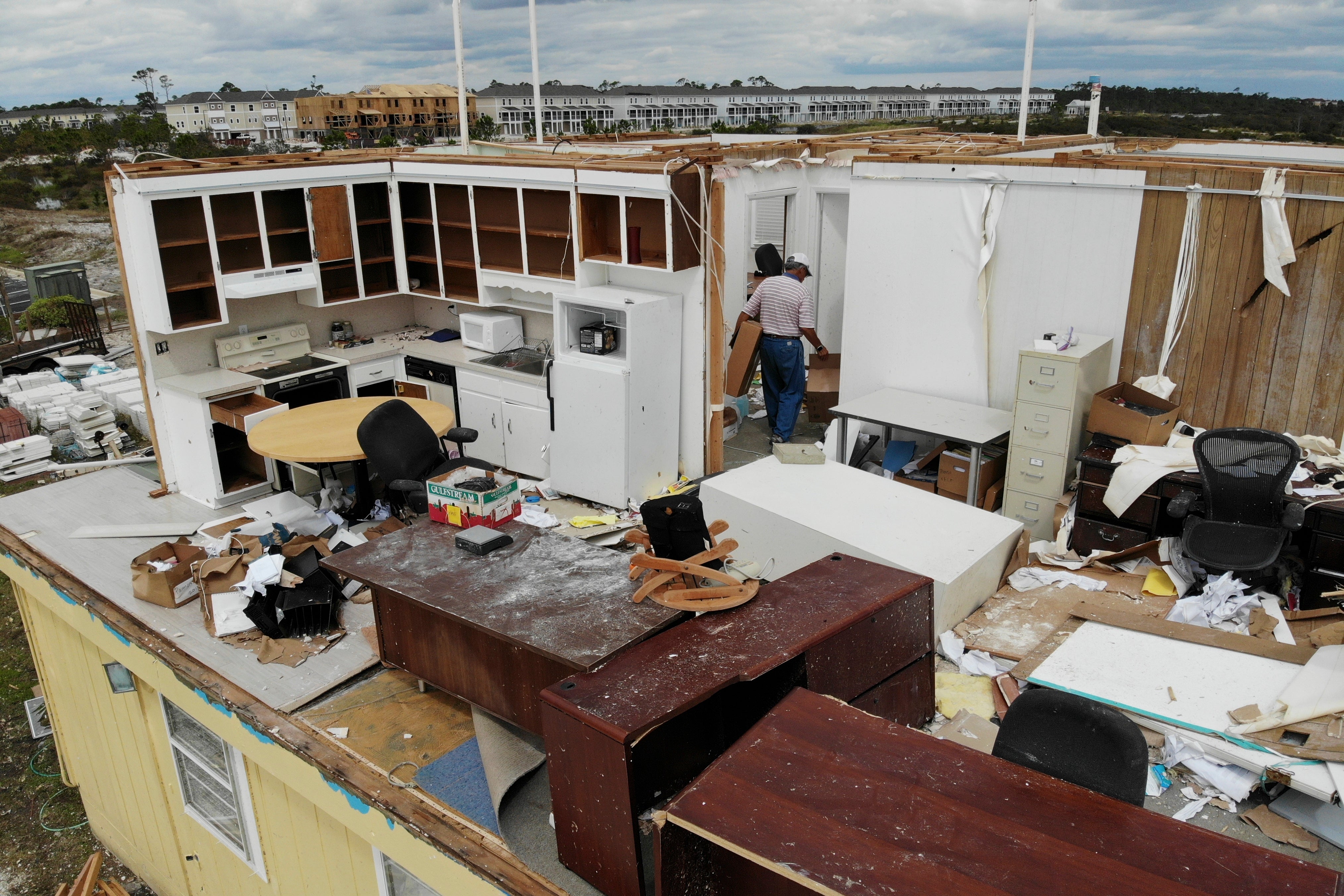Running out of storm names, Atlantic season goes Greek
Forecasters have run out of traditional names for the Atlantic hurricane season

Your support helps us to tell the story
From reproductive rights to climate change to Big Tech, The Independent is on the ground when the story is developing. Whether it's investigating the financials of Elon Musk's pro-Trump PAC or producing our latest documentary, 'The A Word', which shines a light on the American women fighting for reproductive rights, we know how important it is to parse out the facts from the messaging.
At such a critical moment in US history, we need reporters on the ground. Your donation allows us to keep sending journalists to speak to both sides of the story.
The Independent is trusted by Americans across the entire political spectrum. And unlike many other quality news outlets, we choose not to lock Americans out of our reporting and analysis with paywalls. We believe quality journalism should be available to everyone, paid for by those who can afford it.
Your support makes all the difference.The Atlantic’s record-breaking “crazy” hurricane season got a bizarre European remake Friday as forecasters ran out of traditional names and trotted out the Greek alphabet for subtropical storm Alpha. And it was misplaced geographically, bearing down on Portugal.
This is only the second time National Hurricane Center forecasters have had to pull out the Greek alphabet for names, with the last time being 2005. Tropical Storm Wilfred, the last of traditional names, officially formed little more than an hour before Alpha, prompting the hurricane center to tweet “get out the Greek alphabet.”
Forecasters also predict Tropical Depression 22 in the western Gulf of Mexico will soon become a named storm. And if that’s not enough, they are following two other systems that might develop.
“It’s crazy,” said University of Miami hurricane researcher Brian McNoldy. “This is just off the charts., We’ve made a joke of breaking records.”
Both Wilfred and Alpha set records for earliest 21st and 22nd named Atlantic storms, beating 2005 by a few weeks.
Alpha is odd in another way. It's misplaced into an area where storms don't generally brew. That’s so unusual that Alpha barely shows up on the hurricane center’s real time storm tracking map, which is focused on the Americas. Only the “Al” of its Greek name shows and European forecasters are responsible for monitoring the small and weak Alpha.
But Alpha fits with the rest of this season in another way. About half of the storms this busy hurricane season have only lasted a few days and have been quite weak, McNoldy said. Vicky for example popped up quickly and soon dissipated without much notice. And with 22 storms only two of them — Laura and Teddy, which is still swirling — reached major hurricane status, which is also kind of unusual, McNoldy said.
McNoldy said the environmental conditions reduce high level winds enough for storms to form, but not enough for them to strengthen or even survive long. La Nina, which is a cooling of parts of the equatorial Pacific that changes weather worldwide, is a factor in making some but not all of the Atlantic more active, he said. It doesn’t explain Alpha forming, he said.
McNoldy does not see a human-caused climate change connection at work in the number of storms.
Just to remind people, the hurricane center tweeted out the entire 24-letter Greek alphabet, with a red slash through Alpha. McNoldy joked that after that there’s no official name list, but the Russian alphabet is available.
With at least another month of the heart of the busiest part of hurricane season to go, one weather-watcher on Twitter talked of “Hurricane Pi on Thanksgiving.”